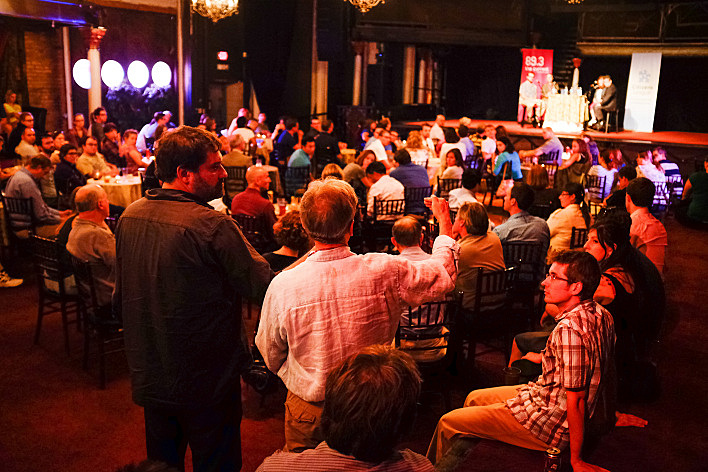On Tuesday, December 5th, the Citizens League and Minnesota Public Radio’s The Current hosted their last Policy and a Pint event of 2017.
We discussed “The Caregiving Sandwich”: The challenges and opportunities surrounding individuals who care for both their children and their aging parents. Maureen Kenney, Director of Aging Services at the Wilder Foundation, and one of our panelists that evening, penned a fantastic follow-up piece about the conversation that evening, and caregiving in general:
On a cold, icy evening in St. Paul, a crowd of Minnesotans gathered to talk about family caregiving, specifically the “caregiving sandwich” which translates to those caring for aging parents and children leaving them ‘sandwiched’ in their role as mother/daughter, son/father. This wasn’t a support group, it was a social venue known as “Policy and a Pint” hosted by Citizen’s League and Minnesota Public Radio’s The Current. “Sandwich caregiving” is just one of many scenarios of family caregiving.
This topic of caregiving seems so straightforward. But when complications of employment, multi-generational caregiving including grandparents or extended family, health issues, financial concerns, housing, or even resource access barriers arise, caregivers find themselves overwhelmed and uncertain to know where to turn and what to do next. Caregiving can be complex. Often, it is a core value and responsibility embedded in families and communities for generations. It can also be isolating, frustrating and exhausting. However, an open discussion about the challenges, realities and personal experiences of those caregiving can lead to new opportunities and solutions.
Let’s talk about caregiving more often from diverse perspectives
There is no ‘pill’, no three-step solution or quick fix to solve the complexities of family caregiving. It is at times hard, emotional, and complicated. The caregivers I have personally talked to readily chose to serve in this role and they are resilient, and willing to challenge the status quo to improve options for others, destined to be following in their path. And, as evidenced by the questions and personal stories shared at this social community event, many can also attest to a fragmented system of information, resources and support for caregivers. Being aware about options, financial implications, future considerations is beneficial and yet, not talked about enough.
> Read more on the Wilder Foundation’s Community Matters Blog
